Insomnia-The Cure: Natural & Artificial Remedy
Insomnia-The Cure: Natural & Artificial Remedy. Sleep is incredibly important for health. We need sleep for our body to heal and rejuvenate from our day’s activities. Unfortunately, many people either have difficulty falling asleep or simply don’t get enough sleep, which is where Insomnia remedies come in. There are two basic categories when it comes to Insomnia Remedies.
Insomnia-The Cure: Natural & Artificial Remedy
1. Artificial Remedy
The first is the Artificial Remedy. This type of remedy or medicine can be found in the pharmacy and clinic. They are usually prescribed to target the sickness at the source. Artificial remedy usually costs a bomb, but it typically delivers fast results. Most medicine today is toxic, filled with harmful chemicals that
are not safe to be consumed for a prolonged period of time.

1. Eszopiclone:
Regardless of which kind of remedy you choose, the goal is to help you fall asleep and stay asleep. These remedies are meant to aid you to get more rest at night. Most of these remedies will cause drowsiness, so it’s best to take them right before bed unless it states otherwise. It is also important to make sure that you talk to a doctor before getting any medication listed below.
Also known as Lunesta, is a group of drugs capable of putting you to sleep easily and quickly.
Statistics show that Lunesta is can put most people to sleep for an average of 7- 8 hours. It’s a strong group of drugs, so make sure you stay away from it unless you’re able to have a full night’s rest to prevent grogginess. FDA limits the drug dosage to be not more than 1mg. Any more than that might bring upon the risk of grogginess the next day.
2. Ramelteon:
This group of drugs functions differently, it doesn’t cause adverse effects to the users such as grogginess, drowsiness, and so on. Common drugs used to induce sleep target the CNS (Central Nervous System), depressing its functions and put the user in a sleepy state. Ramelteon, on the other hand, targets specifically the sleep-wake cycle. This drug is prescribed to those who have difficulties falling asleep. Due to the lack of side effects, Ramelteon can be prescribed for long-term use. The drug has also shown no history of abuse or dependence.
3. Zaleplon:
Also known as Sonata. Most drugs have a long activation time in the human body. Sonata isn’t one of them. Among all the latest sleeping pills, Sonata managed to stay active in the system for the shortest amount of time. In other words, this drug leaves little to no side effects the next morning. For instance, if a person has difficulty falling asleep, a pop of Sonata pill will help him fall asleep without feeling off the next day.
4. Doxepin:
Also known as Silenor. This group of drugs is prescribed specifically to those who have difficulty staying asleep. You can say that this is an artificial remedy for the “light sleepers” who easily wake up at night due to a minimal amount of stimuli. It acts by suppressing the histamine receptors, thus aiding your sleep maintenance after you’ve fallen asleep. As this drug requires you to stay asleep for a set amount of time, do not consume Silenor unless you’re able to sleep in for full 7-8 hours at night. The dosage depends on your response to treatment, health, and age.
5. Benzodiazepines:
Sleeping pills Benzodiazepines are useful for both short-term and long-term insomnia. It has a lasting effect on the body as it stays in the system for a long time. So, for those who’ve had insomnia for a long time, this drug can aid them in their journey to full recovery. It’s commonly used to treat prolonged nightmares and sleepwalking. As the effect of this drug is unyielding, you might feel tired and drowsy the next day. Another side effect of this medication is that this drug can result in drug dependence, meaning that you might have to rely on this drug to fall asleep and stay asleep in the future. Benzodiazepines can be found in sleeping pills Triazolam (Halcion), Alprazolam (Xanax), Temazepam (Restoril), and others.
It is important to get a medical evaluation before you take any sleeping pills.
Visit a doctor for a thorough examination. Always consult your doctor about the adverse effects of any medication before deciding which pills to take. Each drug can cause different side effects. The side effects can be a headache, severe allergic reaction, prolonged drowsiness to just name a few.
Insomnia-The Cure: Natural & Artificial Remedy
2. Natural Remedy
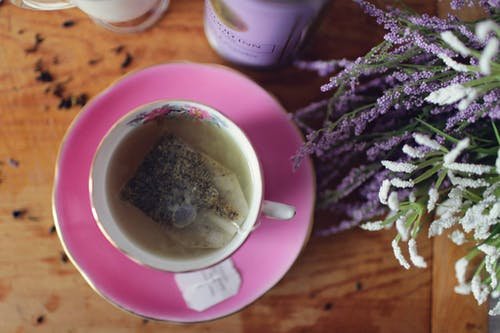
On the other hand, some would prefer to go for natural remedies instead.
The other kind of remedy is called Natural Remedy. People have practiced natural medicine for centuries. This type of remedy utilizes the body’s natural healing process for beating insomnia. It is often less expensive, but what makes them stand out is the fact that they’re not as toxic as Artificial Remedy.
You don’t have to depend on chemicals with harmful adverse effects especially upon waking up. Instead, why not use natural remedies to repair your sleep cycle and put an end to insomnia.
1. Go Camping

When the lure of the TV or fiddling on the phone keeps you up late at night, it’s time to grab the tent and go camping. Stay away from electronic devices and enjoy a digital detox once in a while. Put yourself in a distraction-free zone and be mindful of your surroundings and yourself. Utilize this time to meditate, do some yoga, write, recollect your thoughts, or simply breathe. According to several studies, campers who stay away from gadgets and practice winding down rituals such as meditating or listening to music fell asleep about 2 hours earlier than usual.
Another important point to remember is that digital devices contribute to insomnia.
It is found that artificial light sources can negatively affect circadian rhythms. Try sleeping on the ground, not in your car or cabin. That way, you’ll get grounded and be one with nature. Regardless of what you do during camping, the ultimate goal is to relax, remove yourself from distractions and demands from others, stay away from artificial light, and be one with nature. Bath under the natural sunlight and fall asleep when the sun goes down. In no time at all, you’ll reset your sleep rhythms.
2. Music Therapy
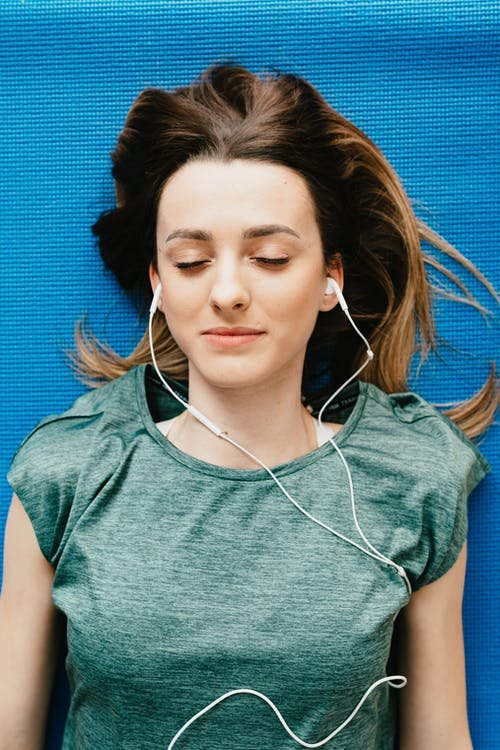
Music has been used since ancient times to combat insomnia.
It is a healing tool that can help to ease anxiety which can contribute to poor sleep quality. The major advantage of this technique is that it’s easy to use and has no side effects. There are many different types of music therapies, and they differ in the types of neurological stimulation they evoke.
For instance, classical music can be a powerful tool for comfort and relaxation while rock music may cause discomfort.
Try to go for soft relaxing music that has sounds of nature like the ocean, birds, waterfall, etc. Several studies showed that people who listen to calming music before going to bed had improved sleep quality during the night than people who don’t. Hence, if you’re having trouble falling asleep, this could be a solution.
3. Power-Down For Better Sleep
Sleep is not an on-and-off switch. Your body needs time to unwind and ready itself for shuteye. Insomniacs often find it difficult to shut off their brain at night. You can try to power down for better sleep. This technique aids in quieting things down so that your body will understand that it’s time to get some rest. To set the stage for sleep, it is significant to unwind and dim our minds. For instance, if you take a warm before bedtime, it’ll create a drop in body temperature, triggering the body to start prepping for sleep. By taking a warm shower, your body temperature will slow down metabolic functions like breathing, digestion, and heart rate.
Your body will understand that it’s time to slow down and relax.
If you have the habit of listening to music before heading to bed every night, your body will be conditioned that listening to music at night signals bedtime. It’s all about habits and conditioning. Carve out at least half an hour of wind-down time before bed to do breathing or relaxation exercises to clear your mind. The goal of this power-down hour is to signal your brain that it’s time to wind down, relax and sleep.
4. Sleep In A Cool Room
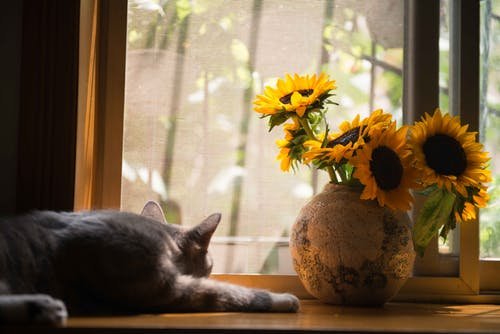
Those who’ve problems falling asleep usually have a higher score body temperature immediately before falling asleep as compared to their healthier counterparts. Thus, this group of insomniacs needs to wait for at least 2 to 4 hours before their body temperature lowers and initiates sleep.
Research shows that the optimal room temperature for sleep is between 16 to 20 degrees Celsius. When you’re trying to sleep, your brain enjoys the cold environment. Besides, sleeping in a cold bedroom also helps in anti-aging. It aids in releasing anti-aging hormones known as melatonin, a potent antioxidant that tackles inflammation, strengthens the immune system, prevents cognitive deterioration and cancer.
There’s a saying that those who go to bed early and rise early live longer.
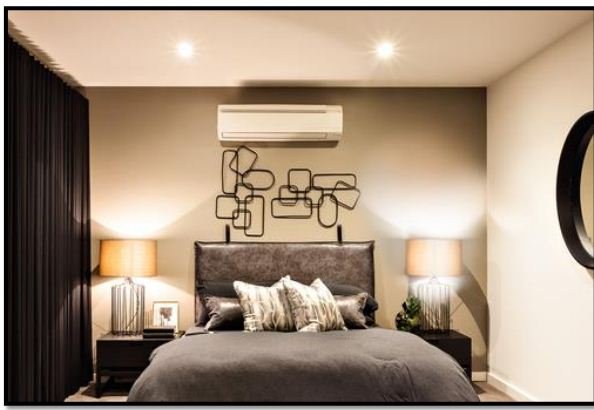
It makes a lot of sense considering that sleeping in a cold bedroom reduces neurodegeneration and oxidative stress. I can go on and on regarding the anti-aging benefits of having a good night’s sleep in a cold environment. But the key to enhancing the production of anti-aging hormones in your body is to have a night of adequate sleep. And the first step to do that is to create an optimal sleeping environment by lowering the bedroom temperature. Insufficient sleep brings a lot of harmful effects to your physical and mental health. Ultimately, it can put your life at risk. So make sure to fix your sleeping habits and you can begin doing so by creating an optimal sleeping environment.
5. Break A Sweat
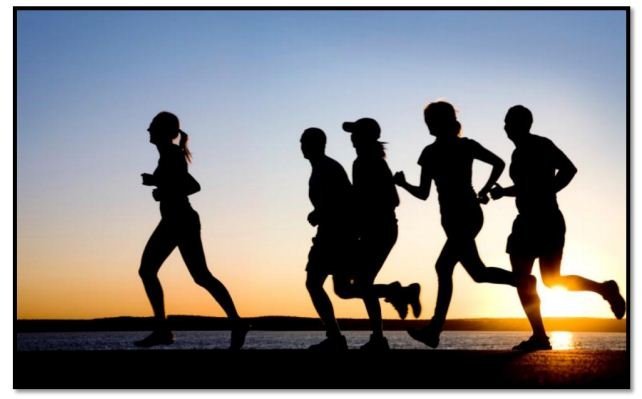
Exercise early. It’s no secret that exercise improves sleep and overall health. But a study published in the journal Sleep shows that the amount of exercise done and when they workout makes a difference. Researchers found that women who exercise at a moderate intensity for at least 30 minutes each morning, 7 days a week, have less trouble sleeping than women who exercise less or later in the day. Morning exercise seems to positively affect our body rhythms that in turn improves our sleep quality. One of the reasons for this interplay between exercise and sleep may be body temperature. Your body temperature rises during exercise and takes up to 6 hours to drop back down to normal. It’s because cooler body temperatures link to better sleep. So it’s important to give your body time to cool down before bed.
Sleep is a crucial part of our health and healing.
Take it seriously, and seek out the help of a functional medicine practitioner if you can’t get your sleep under control. All these require discipline and commitment. Once you reset your biological clock and fall back into the normal sleep rhythm, you’ll finally enjoy the benefits of restful, restorative sleep.
Binding the Spirit of Fear Worry and Depression
https://www.pexels.com/photo/orange-cat-sleeping-on-white-bed-1560424/

